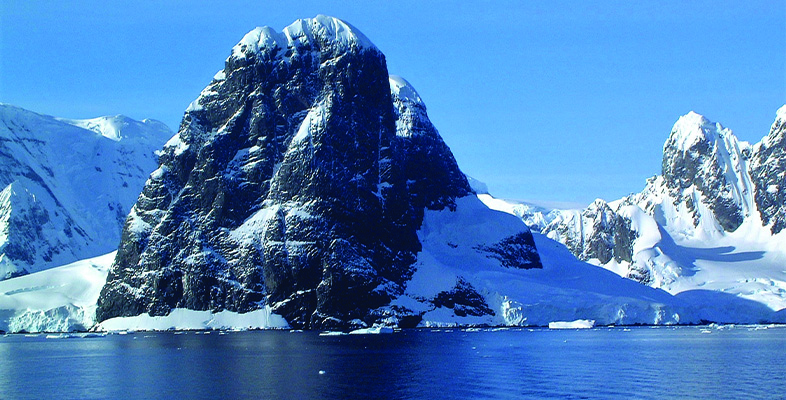Gain an understanding of the natural world and how the web of life works, with illustrations from around the world.
This course is designed to be studied for about 2 hours per week over 6 weeks. As there is no start and end date you can study in your own time and your own pace.
Throughout this free non-accredited course you will be considering the following overarching questions:
- What is the importance of understanding ecosystems?
- How do they work?
- How crucial is their conservation?
If we don't grasp why ecosystems function, it becomes harder to determine possible reasons for when they don't, and makes it difficult to identify possible environmental threats to humans. In this course you will discover how organisms are linked together by complex interrelationships, how such links are studied and how the physical properties of a particular habitat interact with the organisms that inhabit it. Using case studies, you will come to learn how knowledge of ecosystems leads to understanding of their individual importance, and how they can be preserved.
This course is intended for those with an interest in natural history, conservation or the environment and does not require any previous experience of studying these subjects.

Course learning outcomes
After studying this course, you should be able to:
- define an ecosystem
- understand the different ways in which a system can be analysed
- use your knowledge of the key features of ecosystems to determine interrelationships between organisms in a simple ecosystem
- describe adaptations shown by animals to extreme desert and polar environments
- discuss how small organisms in marine systems contribute to energy flow through ecosystems
- explain how humans impact on three examples of fragile ecosystems.
First Published: 04/06/2014
Updated: 18/12/2019

I found the recommendation to develop one's own glossary beneficial, though there are implications where the student adds a non-authoritative definition that is then 'set in stone' in their mind. There are also cases where there are multiple definitions that may not be immediately known; for example "indicator species" may indeed assist in determining the types of habitats (as stated in the course), though a more common definition refers to the living organisms that assist in monitoring changes within ecosystems, e.g., lychen, mayflies and otters.
There follows the errata that I came across (some were clearly a result of automated voice recognition when generating transcripts):
3 Investigating symbiotic relationships: the transcript has been cut short.
Week 3 Introduction: Figure 2 "envirobnments"
Activity 1: More recent research states that the frilled neck lizard's flap of skin does NOT regulate body temperature.
https://academic.oup.com/biolinnean/article-abstract/40/1/11/2654260?redirectedFrom=fulltext&login=false
3.2.2 Life in the polar seas: the audio transcript has been severely cut short.
3.3 Apply your knowledge of ecosystems
"emperor penguins" have not been specifically covered?
3.5 Review of Weeks 1 to 3
You can now go*t* to Week 4
Week 4: The unseen world Introduction
Uncaptioned interactive content Transcript Ocean ecosystems
methicillan-resistant staph. aureus, or MRSA
-> methicill*i*n-resistant staph. aureus, or MRSA
4.1.2 Investigating flagellates
Uncaptioned interactive content Transcript Investigating flagellates
anteriorally -> anteriorly
posteriorally -> posteriorly
dessication -> desiccation
Activity 1
'Microscopic organisms' tends to be shortened to 'microorganisms'?
4.3.1 Ecosystems and diversity
Figure 6 An exam*o*ple
5 Summary of Week 4
take alook at our
Week 5
5.2 Managing an ecosystem – the art of coppicing
Uncaptioned interactive content Transcript Managing an ecosystem - the art of coppicing
"is is"
"that there are nobody else" -> are -> is
Week 6
Introduction
Figure 1 is missing both its short and extended descriptions.
6.1 Gorillas and tourism
The Internet page has 2 paragraphs that are not present in the Word document: "The Bwindi population of mountain gorillas... ...working they are looking out for poaching activities."
...in particular, the loss of the reference to 100,000 individual gorillas may be significant?
6.2 China’s Loess Plateau
The Internet page has 1 paragraph that is not present in the Word document: "In 2015, The UN (United Nations) produced a report on food and agriculture... ...ruined farmland."
6.3 Galápagos
The figure 3 is missing both its short and extended descriptions.
Between 6.3.2 and 6.3.3 the Internet site's section 3.4 "How do invasive alien species reach the Galápagos islands" is missing?
6.4 End of course quiz
Question 7 of the final quiz has 'Correct' in the question for the the correct answer.
6.5 Conclusion
Transcript Conclusion
"lowest plateau" -> "Loess Plateau"